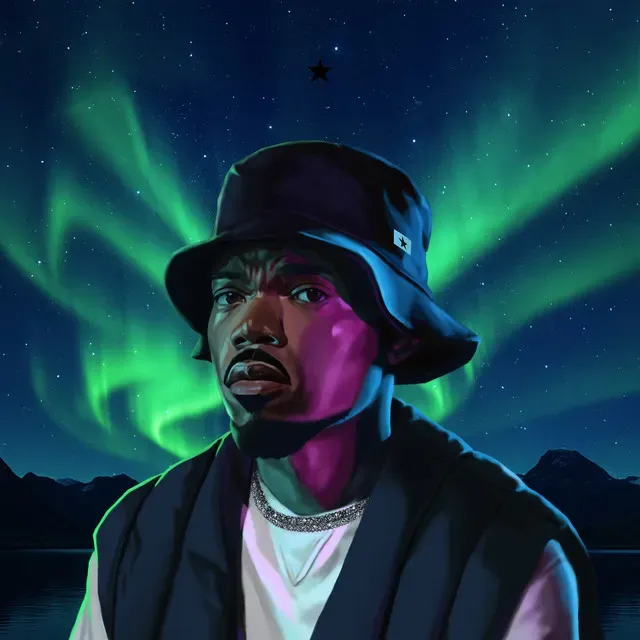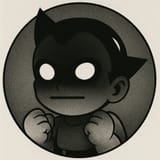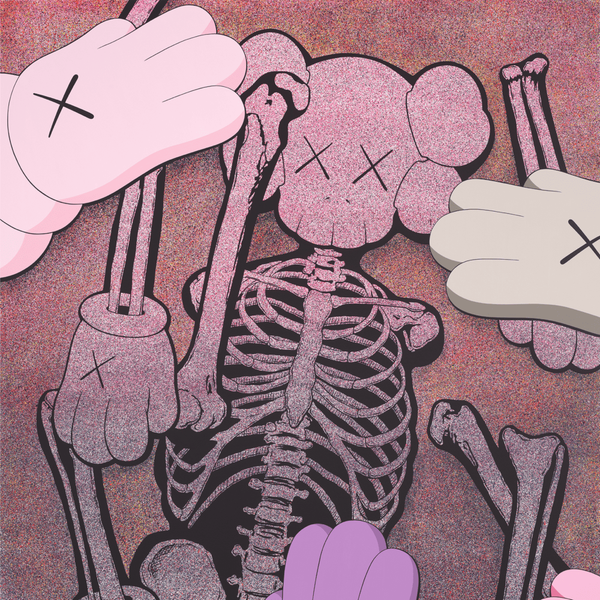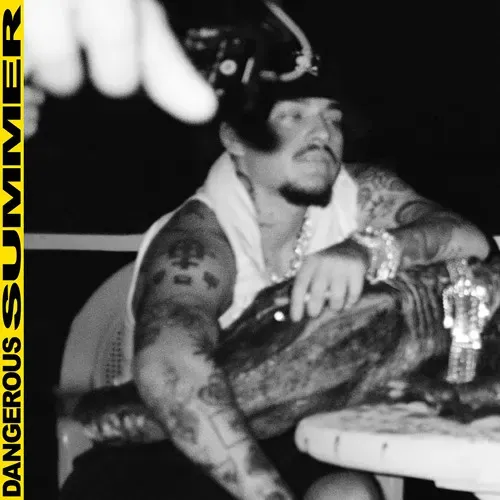Chance The Rapper’s STAR LINE - Sleepy and Directionless
Chance The Rapper - STAR LINE (Review)

Chance the Rapper returns after a long hiatus and near universally panned album, The Big Day (2019). Chance was slammed for juvenile songwriting, among other things, and on some level, the reception of that LP seemed to put his music career on ice.
With Star Line, Chance attempts to make right, the album’s cover an ode to his previous, more widely praised and appreciated mixtapes that came before the infamous The Big Day (i.e. Acid Rap, Coloring Book, etc.). Ironically, Chance’s facial expression on the cover represents the sound of the album perfectly: confusing, timid, depressing, and concerning.
Chance the Rapper is an artist who relies way too much on his strongest skill set: poetic, non-offensive wordplay that makes a listener think, “oh that was witty,” before moving on to the rest of the five-minute track with shoehorned choruses. Choruses, of course, make a song memorable, but without them, you may notice the verses from Chance have no thesis, no grand statement, constantly fluctuating between the annoyingly comic and vaguely socially conscious.
No More Old Men is a great example of when Chance’s talents and production meet for an enjoyable listening experience. A funky bass guitar, African percussion, backed with tribal vocal chants carry the track, making it extraordinarily groovy. Somber lyrics from Chance make the track immersive, talking poetically about the insecurity of life from the Black male experience. The song is brilliantly performed; the content, delivery, and production all make for a beautiful and unique moment on the album.
On the other hand, Space & Time diverts from that groundedness, sounding like a Disney musical but without the charisma, vocal talent, or songwriting to bring the idea home. The production budget here is impressive, but the execution is too try-hard. There’s not enough respect here for the intentionality needed to make big tracks like these work.
Songs like Link Me in the Future have solid production, bedroom pop drums and guitar, a stronger moment on the album. On paper it should be a good track, but listening to it is a slog, too narcoleptic — flashes of beauty upended by tongue-in-cheek, blandly delivered lyrics:
“The world’s on fire, girl you’re marrying a snowman.”
Songs don’t know whether to be totally depressing and emotionally immersive or just fun and upbeat.
Too often, vocal performances are mid at best with little layering or variation. Chance’s vocals range from completely monotone to the occasional off-key singing. Vocals are performed often as “straight-shot” narration for most of the album’s overcomposed production. The album appears conscious and socially aware on the surface, but Chance is simply not charismatic enough to bring these songs to any meaningful destinations. A few beautiful moments are sprinkled throughout, without any epic conclusions.
Link Me in the Future is followed by Gun in Your Purse ft. Young Thug, consistent with the LP’s somber sonics, but the song is more aligned with a summer hip-pop jam. Chance’s dullness is highlighted best on this track. Sad in its tone but still upbeat, the chorus:
“put this gun in your purse, sometimes it’ll get bad, sometimes it’ll get worse, sometimes we gotta die, them niggas gotta die first…”
The song has an aura of seriousness but never fully commits due to its otherwise pop, party-ready lyrical performances.
Tree ft. Lil Wayne is a great example of interesting production — moody, spacey, reverbed guitars — but the chorus is horrible. It’s horribly performed, and the lyrics that follow it are some of Chance’s worst on the album. Due to the tracklist of 17 songs, this album comes off as incredibly self-indulgent, unnecessarily extending its runtime by relying too much on jester personas and meandering.
Chance is a rapper without any edge, one that is obsessed with enduring by “laughing through the pain.” The comedic effort doesn’t translate to a good album; instead, it comes off far too restrained, meek, and cheesy.
While Star Line is admirable with all its art-pop ambitions, it constantly retreats to an unambitious pop-rap niche that keeps him mediocre and derivative.
Verdict: 4/10


